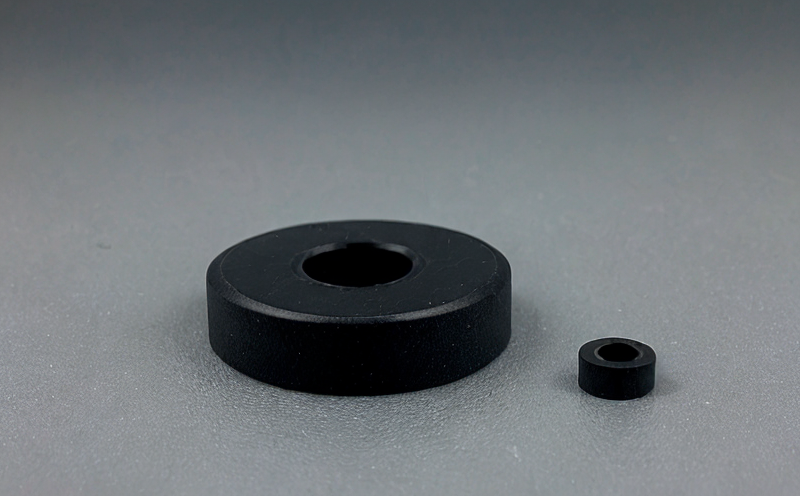Hydroscopicity of material
The Crucial Role of Hydroscopicity in Material Analysis Why Eurolabs Expertise Matters
In the realm of materials science and engineering, understanding the properties of materials is crucial for ensuring product reliability, performance, and safety. Among these properties, hydroscopicity stands out as a critical characteristic that can significantly impact a materials behavior under various environmental conditions. Hydroscopicity refers to a materials ability to absorb moisture from its surroundings, leading to changes in its physical and chemical properties.
For businesses operating in industries such as aerospace, automotive, construction, and consumer goods, hydroscopicity is an essential parameter to consider when selecting materials for their products. This is because exposure to moisture can cause degradation, corrosion, or even complete failure of the material, resulting in costly repairs, recalls, or reputational damage.
In this article, well delve into the world of hydroscopicity and explore its significance for businesses. Well discuss the advantages of using Eurolabs hydroscopicity testing services and highlight key benefits that can enhance your product development process.
What is Hydroscopicity?
Hydroscopicity is a measure of a materials affinity for water, which is typically characterized by its capacity to absorb moisture from the air. This property is often influenced by factors such as chemical composition, surface roughness, and porosity. As materials absorb moisture, they can undergo various changes, including
Swelling or shrinkage
Corrosion or degradation of surface properties
Changes in mechanical strength and durability
Increased risk of cracking or breakage
Why is Hydroscopicity Important?
The significance of hydroscopicity lies in its potential to compromise the performance and safety of materials. When a materials hydroscopic behavior is not well understood, it can lead to unforeseen consequences, such as
Reduced product lifespan
Increased maintenance costs
Enhanced risk of accidents or failures
To mitigate these risks, businesses need accurate data on their materials hydroscopicity. This knowledge enables them to
Select the most suitable materials for their applications
Design products with moisture-resistant features
Develop targeted testing protocols for quality control
Improve product durability and reliability
Advantages of Using Eurolabs Hydroscopicity Services
Eurolab offers a comprehensive range of laboratory services, including hydroscopicity testing. By partnering with our experts, you can benefit from
Accurate results Our state-of-the-art equipment and experienced technicians ensure precise measurements and reliable data.
Rapid turnaround times We prioritize efficiency without compromising on quality, providing timely results to support your product development process.
Compliance assurance Eurolabs hydroscopicity testing services help you meet regulatory requirements and industry standards.
Cost savings By identifying potential issues early on, you can avoid costly redesigns, reworks, or recalls.
Key Benefits of Hydroscopicity Testing
Improved product design Understanding a materials hydroscopic behavior allows for informed design decisions, reducing the risk of performance failures.
Enhanced safety Accurate data on hydroscopicity helps ensure that products are safe for use in various environments and conditions.
Increased efficiency By selecting materials with suitable hydroscopic properties, businesses can streamline their production processes and reduce waste.
Compliance with regulations Eurolabs testing services help you meet industry standards and regulatory requirements, minimizing the risk of non-compliance.
How Can Hydroscopicity Impact Your Business?
Hydroscopicity can affect your business in various ways
Materials selection Choosing materials with suitable hydroscopic properties ensures that products function as intended.
Product development Understanding a materials behavior helps designers create more robust and reliable products.
Supply chain management Accurate data on hydroscopicity enables you to manage supply chains effectively, reducing the risk of costly delays or disruptions.
QA Frequently Asked Questions about Hydroscopicity
What is the difference between hydroscopicity and water absorption?
Hydroscopicity refers specifically to a materials affinity for water, whereas water absorption describes the amount of moisture absorbed by a material.
Can Eurolab test materials with complex compositions or structures?
Yes, our experienced technicians can handle testing even the most intricate materials.
How does hydroscopicity impact product durability?
Exposure to moisture can cause degradation, corrosion, or failure, compromising product lifespan and reliability.
What are the implications of neglecting hydroscopicity in product development?
Ignoring this critical parameter can lead to costly redesigns, reworks, or recalls, as well as reputational damage.
Conclusion
Hydroscopicity is a vital property that demands attention from businesses operating in various industries. By understanding a materials behavior and performance under moisture exposure, companies can optimize their product development process, ensure compliance with regulations, and minimize the risk of costly failures.
At Eurolab, our comprehensive range of laboratory services includes expert hydroscopicity testing. Partner with us to gain accurate data on your materials hydroscopic properties and unlock the full potential of your products.
Get in touch with Eurolab today to discover how our hydroscopicity testing services can benefit your business.




